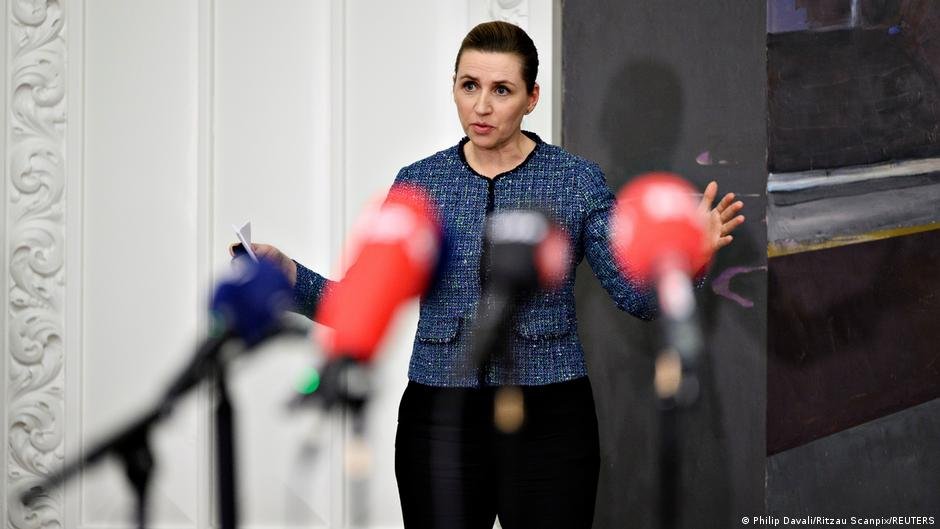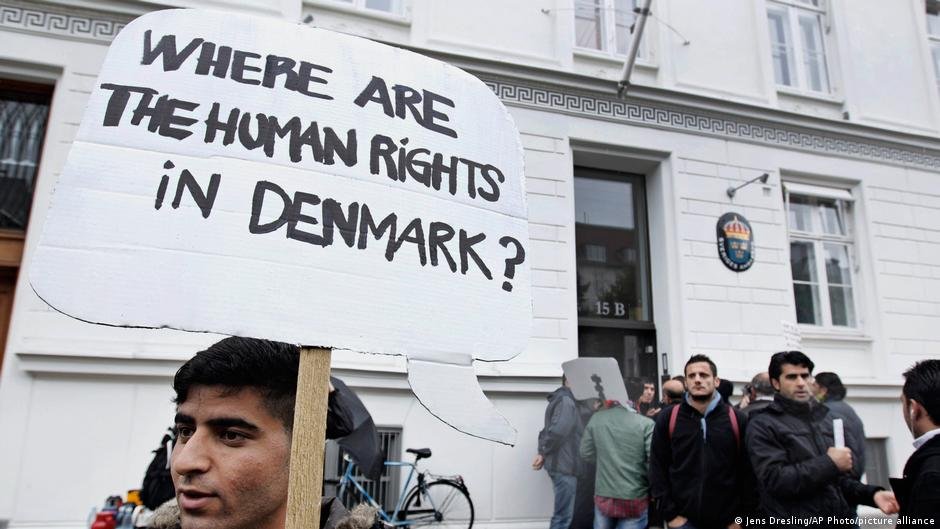Denmark used to have a reputation throughout the world as a liberal haven known for welcoming foreigners. However, this image has changed drastically in the past few years, as a series of new policies have made the Nordic nation rather unattractive for migrants and even for many refugees.
Since 2019, Denmark has been under the leadership of the Social Democrats under Prime Minister Mette Frederiksen, who has pushed her party -- and the overall political landscape of the small Scandinavian kingdom -- further to the right.
Under her leadership, successive coalition governments have issued increasingly harsh measures and laws to limit irregular migration and make the country unattractive for those seeking a better life.
Denmark still has over a year to go until its next parliamentary elections, but Frederiksen's uncompromising remains widely popular, in particular her so-called "zero vision" stance: a goal to reduce the number of asylum applicants in the country to zero.
At the current rate, Frederiksen and the Social Democrats might well be on their way to succeeding with that plan.

Draconian laws to deter migrants
The initial changes that were introduced to Denmark's immigration system under the current government since 2019 reflect policies also observed elsewhere in Europe: Family reunification rules were tightened, deportation practices were increased, and social benefit payments for asylum seekers were lowered.
However, many other immigration laws introduced in the country in due course are regarded as rather unprecedented: For example, guards along the country's fortified borders are allowed to confiscate all personal items of value from irregular migrants crossing the border to help fund the costs associated with asylum procedures as well as housing.
Any item valued at more than 1,300 euros -- including jewelry, watches and even wedding rings -- can be taken away under the law.

Another major shift introduced by the Social Democrats is a major downgrading of failed asylum seekers: If an asylum application is rejected, there are no more monetary benefits paid. Failed asylum seekers only receive food but no money at all after this change in legislation.
In cases where the deportation of failed asylum seekers is feasible and practicable, another new law now specifies that they are to be transferred into prison-like detention facilities; the Committee for the Prevention of Torture (CPT) said that upon examining these centers, it had encountered inhumane living conditions in at least some of those facilities.
The government still sees room for improvement when it comes to the issue of deportations and is meanwhile working on new bills to carry out further returns: A total of 235 individuals were successfully deported from Denmark in the past three years — which is about a third of all those who were scheduled for deportation during that period.
Incentives to leave Denmark
Other legal changes meanwhile address residency issues: Even those who do succeed with their asylum cases in Denmark will no longer receive general protection but limited leave to remain in the country, which is subject to renewal for as long as a return to their home country is deemed to be dangerous. The prospect of eventually gaining citizenship is also increasingly becoming elusive.
People who, however, do decide to return home are now offered an incentive of up to 5,400 euros by the Danish government to set up their new lives, with no questions asked.
All these measures put together have made the Nordic nation quite unattractive for people hoping to settle in Europe: In 2023, there were just over 2,100 asylum applications lodged in the country with a population just shy of six million.
Read AlsoDenmark closer to sending asylum seekers to Rwanda
Honing an unwelcoming image abroad
Denmark furthermore made sure that people in countries of origin knew about how undesirable it had become for migrants:
According to the German weekly magazine Handelsblatt, the Danish government heavily invested in funding campaigns across Africa as well as in Arab nations, focusing in particular on social media, to communicate the image of an unwelcoming host country.
Compared to other Nordic nations, it has also hit the headlines far more frequently with migration-related news. For a while, Denmark also pursued the now-abandoned UK policy of outsourcing its asylum procedures to Rwanda.
Read AlsoResettlement: The long wait in Rwanda's emergency transit mechanisms
Although that plan never came to fruition, it added to the negative reputation that the government under the Social Democrats wanted to achieve among would-be asylum seekers.
Meanwhile, another divisive immigration law also made headlines in Denmark and beyond: The introduction of the so-called "Ghetto Law" allows authorities to intervene and forcibly remove foreigners from neighborhoods if the ratio of non-Western foreigners in those areas exceeds 30 percent.
Several foreign governments have accused Denmark of racism and xenophobia in response to the law, which likely is the reaction the country had wanted to illicit with its overall campaign focusing on keeping migrants away.
Read AlsoGermany urged to follow Denmark's lead on migration policy
An outlier in EU terms
However, Denmark also benefits from a unique legal situation: Though a member of the European Union, it is not subject to European Law in many instances.
This is because, after a failed referendum in 1992 on the EU's Maastricht Treaty, the country was granted an opt-out clause from shared EU laws so that the treaty could still come into force.
In the case of immigration law, this meant that the EU had to assure Denmark that it would not have to participate in the bloc's common asylum policy.
Other EU nations — such as Germany — do not have an opt-out clause and would therefore be in breach of EU law if they pursued similar laws to deter migrants and refugees from reaching their shores.
